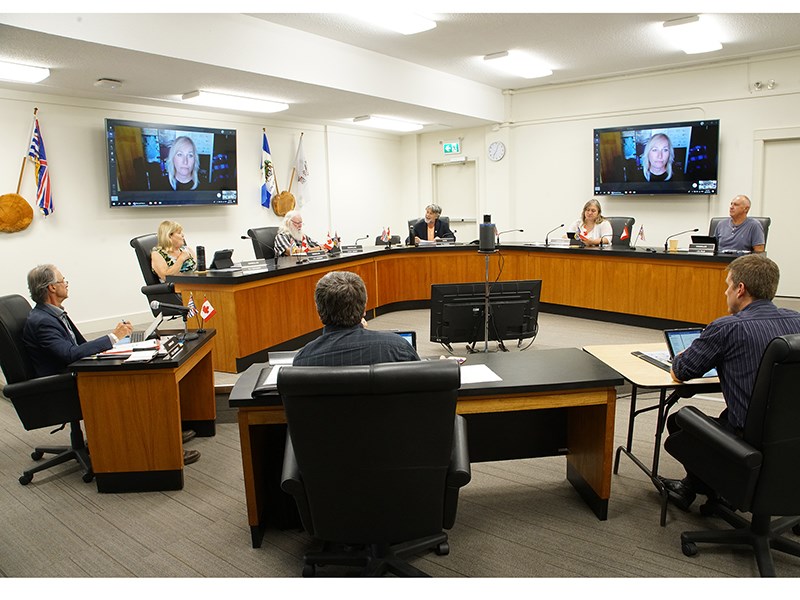City of Powell River Council has given first three readings to three draft bylaws pertaining to the sewer system.
At the September 3 council meeting, council gave three readings to the sanitary sewer user rates draft bylaw, the sewer treatment and disposal system draft bylaw, and sewer collector system draft bylaw.
During discussion on the matter, councillor Jim Palm said he wanted the public to know what council was voting on because it involves more money coming into city coffers through indirect taxation to help with the sewer system.
“We have a hefty bill coming forward on our liquid waste plant and somehow we have to pay for it,” said Palm. “Guess who is on the hook? The good old taxpayers of Powell River.”
Sewer rates adjustments were a long-term vision put forward by the chief financial officer (CFO) at the September 1 committee of the whole meeting, said Palm. He said a dynamic graph and presentation accompanied it.
“There was a lot of thought put into it,” said Palm. “One of the concepts is in 20 years’ time, if we adopt the bylaws that are on the table, we will have collected somewhere in the range of $24 some-odd million to not only help pay for a new liquid waste facility but start replacing the pipes in the ground, which is a costly endeavour, especially in 20 years’ time from now.
“It’s going to cost a great deal of money to keep this city working, moving forward and being green, because this is the biggest green project this community has ever come across.”
Palm said one of the questions he asked at committee of the whole was to change the calculation on the screen, which featured a 7.5 per cent increase in sewer fees in the first two years and a five per cent per year increase in the following two years.
“The one question I have in my mind I got an answer to that day when I asked them to reverse that graph to five per cent across the board, is if we were to start with a five per cent increase this year onward, we will have collected just under $20 million in 20 years’ time,” he added. “The question I have of the chief financial officer is that 7.5 and 7.5 per cent was specifically chosen in years one and two for the additional costs we have of borrowing millions of dollars now, correct?”
CFO Adam Langenmaier said increases do not cover debt servicing that will be carried by the city for the new wastewater treatment plant.
Mayor Dave Formosa said these increases in rates are for maintenance and putting funds away for the city’s asset management plan for aging pipes and materials now reaching end of service life.
“The funds for the new liquid waste facility, we raised $10 million and we need to do another $10 million coming up, and then we may need another $7 million but we have to see how it goes,” said Formosa. “The province has already given us a big chunk, so it’s sitting in the bank collecting interest.”
Councillor George Doubt said the bylaws have nothing to do with the financing for the wastewater treatment plant. He said taxpayers pay for using the sewer system, the sewer treatment and disposal system cost, which are the operations costs, and the operation and replacement of pipes is also included.
“Some have been in the ground for almost 100 years and will cost money to replace,” said Doubt.
He said increases in rates in the draft bylaws over the next four years would mean the typical taxpayer would pay 35 cents more each day for use, care and maintenance of the sewer system.
“It’s reasonable, it creates reserve that should be able to take care of costly repairs we need to do without having the taxpayers burdened with debt or with sudden tax increases to cover these things,” said Doubt.
The three readings of the three bylaws were carried unanimously.



